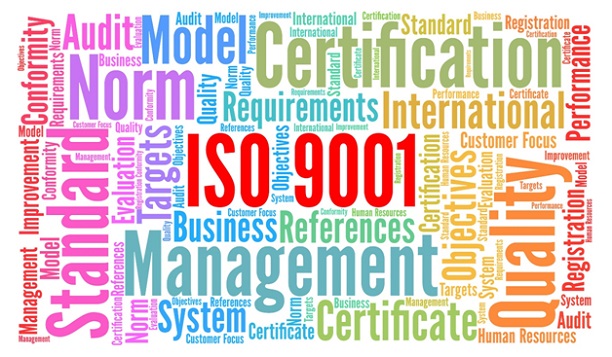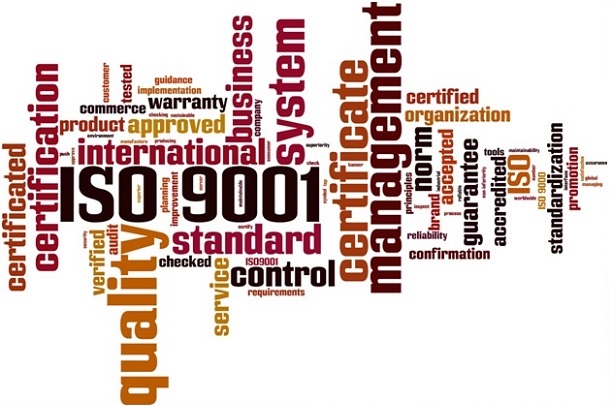Being ISO 9001 certified means that your organization is able to effectively maintain a quality management system (QMS) according to ISO 9001 standards. However, getting to this point can be a time, and effort-consuming process, so many companies question whether or not getting ISO 9001 certified is even worth all the trouble.
Is ISO 9001 certification worth it? Although the process of becoming ISO 9001 certified can be long and seem challenging at times, it can be well worth the effort. However, whether or not ISO 9001 certification is right for your business depends on your organization.

Being ISO 9001 certified provides more advantages than you would think, but just as many disadvantages as well, depending on the company. It is up to senior management to determine whether or not the outcome of being ISO 9001 certified will be worth the effort. If your organization is not sure whether ISO 9001 certification is the best way to go, the following is a list of pros and cons.

When you are ISO 9001 certified, you become one of over one million organizations in the world honored with this prestigious standing through the International organization for Standardization (ISO). However, that is not the only benefit you see from being certified:
Implementing a new quality management system means that you will have to evaluate the performance of your company first. From there, you can determine what steps will be needed to become ISO 9001 compliant.
Through business metrics and data, and recognizing updated systems and processes, you will have a better understanding of your company’s current strengths and weaknesses. You will be able to plan and implement changes that will improve upon your weaker points.
The ISO 9001 standard is built on seven quality principles:
ISO 9001 requires that your organization remains focused on providing quality based on these principles, and in doing so, you improve your operations, products and services, and employee and customer satisfaction.
Implementing an ISO 9001 quality management system will improve the efficiency and effectiveness of your organization’s processes. Management and employees will begin to notice how much easier their roles and workloads are to handle.
In addition, improving company operations will provide more control over your processes (especially with ISO 9001’s requirements for documentation). This will allow your team to continuously deliver quality products and services, while exceeding the expectations of your customers.
Of course, with enhanced systems and processes comes improved products and service offerings for your customers. New products and services can be added to your organization's portfolio seamlessly.
Our QMS templates helped many businesses achieve certification in 2023, why not yours in 2024?
A quality management system will also help employees learn how to do their jobs better, from setting more goals to providing feedback on job performance. This, plus a significant difference in how more efficient and more comfortable their work becomes with a QMS, will improve staff morale and job satisfaction.
By improving your company operations, products, and services, and making your employees happy to work for your organization, you will ultimately improve customer satisfaction too.
Your customers will notice faster processes, higher quality products and services, and superior customer service as a result of your efforts. You will continuously exceed customer expectations, meaning much happier customers and fewer complaints.
If you do see an occasional complaint, having an ISO 9001 quality management system in place will give you the necessary tools to resolve customer issues quickly and effectively, and drive customer satisfaction higher.
As a result of higher customer satisfaction, you will also see an increase in sales.
In addition, many of your customers may require that your company is ISO 9001 certified before conducting business with you. If you are already accredited, you are more likely to gain these customers’ trust.
You can also advertise your ISO 9001 certification to potential new customers to earn their business, and as a result, more revenue.
By implementing an ISO 9001 quality management system, you can cut costs in the long run. As your organization improves its processes within each department, you will find that there are less waste and scraps.
In addition, you will notice that your company will begin to reach its objectives much easier and faster than ever before, giving you more opportunities to make a profit while you reduce overhead costs.

Any organization, no matter how big or small, or what industry they’re in, can benefit from ISO 9001 certification. However, some companies may opt-out of getting certified for the following reasons:
Many requirements in ISO 9001 must be met before an organization is eligible for certification. Understanding these requirements can be quite challenging, especially for newer organizations that have not yet implemented a quality management system.
The process for implementing a new quality management system according to ISO 9001 standards can take a long time, especially for larger companies. With smaller businesses, it may only take between six months to a year to implement a new QMS, while for larger companies, it may be several years before they are completely ISO 9001 compliant.
There is a lot of effort required on the part of management and employees to implement and maintain an ISO 9001 quality management system. In the beginning, integrating a new QMS will include a lot of work.
Because ISO 9001 requires extensive documentation, some organizations—especially those who have not previously operated in this way—argue that the process of having to document and record so much information concerning the quality management system becomes “too bureaucratic.”
Our QMS templates helped many businesses achieve certification in 2023, why not yours in 2024?
It becomes the responsibility of employees to ensure that they comply with ISO 9001 standards and procedures set by the quality management system. If they do not, the organization is likely to lose or not be eligible for certification. The amount of accountability required from staff can add to their stress.
Smaller organizations are usually without the resources needed to become ISO 9001 certified. As a result, larger companies have a competitive advantage since they are more likely to afford certification and marketing their achievement after the fact.
In addition, since many larger organizations require that the companies they work with have certification, small companies that are unable to get certified lose out on obtaining their business.
ISO 9001 was initially created for manufacturers. Although it has evolved over the years to include other industries, many companies argue that its requirements are only suitable for product-based organizations rather than service-based.
Implementing ISO 9001 quality management systems takes some time, and some organizations argue that there are no results that come from being certified. However, because the ISO 9001 standard is meant to help your business improve over time, you are more likely to see many long-term results rather than short-term.

Being ISO 9001 certified is well worth the effort and time put into it. Not only will your organization be more efficient and quality-driven, but your employees and customers will also see a significant, positive difference!
Our QMS templates are proven to work.
Benefits of ISO 9001
Written: 30th July 2019
Author: Richard Keen

Richard is our Compliance Director, responsible for content & product development.
But most importantly he is ISO's biggest fanboy and a true evangelist of the standards.
Learn more about Richard